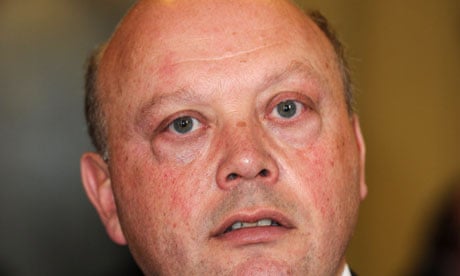The senior doctor called in by David Cameron to review the government's health reforms has dismissed them as unworkable and "destabilising" in provisional conclusions that could fatally undermine the plans.
Prof Steve Field, chairman of the NHS Future Forum – set up last month to undertake the coalition's "listening exercise" – flatly rejects the health secretary's plan to compel hospitals to compete for patients and income, which he says could "destroy key services". The proposal, contained in Andrew Lansley's health and social care bill, has led key medical organisations to warn that it will lead to the breakup of the NHS and betray the service's founding principles.
In an interview with the Guardian, Field says Lansley's plan to make the NHS regulator Monitor's primary duty to enforce competition between healthcare providers should be scrapped. Instead it should be obliged to do the opposite, by promoting co-operation and collaboration and the integration of health services.
"If you had a free market, that would destroy essential services in very big hospitals but also might destroy the services that need to be provided in small hospitals," says Field.
"The risk in going forward [with the bill] as it is, is [of] destabilising the NHS at a local level. It would lead to some hospitals not being able to continue as they are. If you were to say 'we're going to go out to competition for vascular surgery services', University Hospital Birmingham wouldn't be able to run their own trauma centre, for example, because you wouldn't have the staff and the skills on site to do things and the volume of procedures needed to ensure clinical standards remain high."
UHB is one of England's best-regarded hospitals and its trauma service, which treats injured military personnel from Afghanistan and Iraq, is widely admired.
"We need some significant changes in how the role of Monitor is described and enacted in order to reassure patients and doctors and nurses", Field says.
The prime minister has become concerned that the bill's promotion of competition has allowed its many critics to claim that the health service will be privatised, undermining Tory attempts to detoxify their reputation on the NHS.
In a series of policy suggestions that will help Cameron deliver the "significant and substantial" changes to the bill he promised this week, Field suggests that there should be agreed lists of "designated" – protected – core services that each hospital in England had to provide to ensure the NHS remained a truly national service. For example, each smaller hospital should have to have an A&E and maternity unit, unless there was another close by, he said. Smaller hospitals could be given subsidies to ensure their long-term future.
Field's group of 44 health experts will deliver its final report to Cameron, Nick Clegg and Lansley at the end of the month.
Fields comments should help neutralise the anxieties on competition raised by key medical organisations such as the British Medical Association and the Royal College of Physicians, and reassure sceptics that his review is meaningful.
This is the first time he has publicly aired the initial conclusions he has reached after weeks of discussions with scores of NHS stakeholder organisations, health professionals and patients. His intervention will increase the pressure on Lansley, whose hold on his job has become the subject of speculation among MPs and within the NHS. If Field's suggestions help persuade Cameron and Clegg to stage a U-turn then Lansley, who has become increasingly isolated during the listening exercise, may not survive.
In remarks that will be closely studied in Downing Street, Field also suggests:
All the new GP consortiums should have a reserved place on the board for a nurse and a representative of local doctors, to reduce the alienation felt among health professionals.
A series of new "clinical cabinets" should be set up containing local health, social care and council representatives. They would advise consortiums, NHS hospitals and public health departments.
GPs do not have the skills to commission several key sorts of healthcare‚ "including maternity services and end-of-life care", so in those areas will need to do so in new "networks" – groups of consortiums, overseen by the NHS National Commissioning Board.
Plans to overhaul medical education and training will be slowed down.
A new levy could be imposed on private hospitals, which do not train doctors, to fund the NHS's training of future medics.
However, while Field rejects the most controversial element of the Lansley plans, he also risks angering medical groups by suggesting that competition should still be increased in the NHS to drive up standards and give patients more choice. The limit on what semi-independent foundation trust hospitals can earn should be lifted and would benefit rather than endanger the NHS, he says. His backing for greater use of private and charitable providers of physiotherapy, opthamology and end-of-life care is also in line with Cameron's view that the NHS must undergo major reform.
Field criticises Lansley indirectly by stating that most of the controversy over the bill "is because the vision for what the government are trying to do with the NHS isn't clear enough to the average person on the street". But he also castigates unnamed senior doctors for "shroud-waving" and scaring patients by exaggerating the bill's threat to the NHS.
It is unclear if the NHS Future Forum's final report will contain significant enough changes to assuage the Liberal Democrats, whose leader made clear last week that his MPs would block the bill unless they were happy with the scale of the rethink.
A Department of Health spokesman said: "We recognise that people have some big questions about how competition in the NHS should work. Steve Field is quite right to say we're looking for changes to make the legislation more clear and effective. We have always been very clear that it is not a free market, it's a social and a regulated market. Competition must be on quality and not on price, [securing] the best quality services for patients."




Comments (…)
Sign in or create your Guardian account to join the discussion